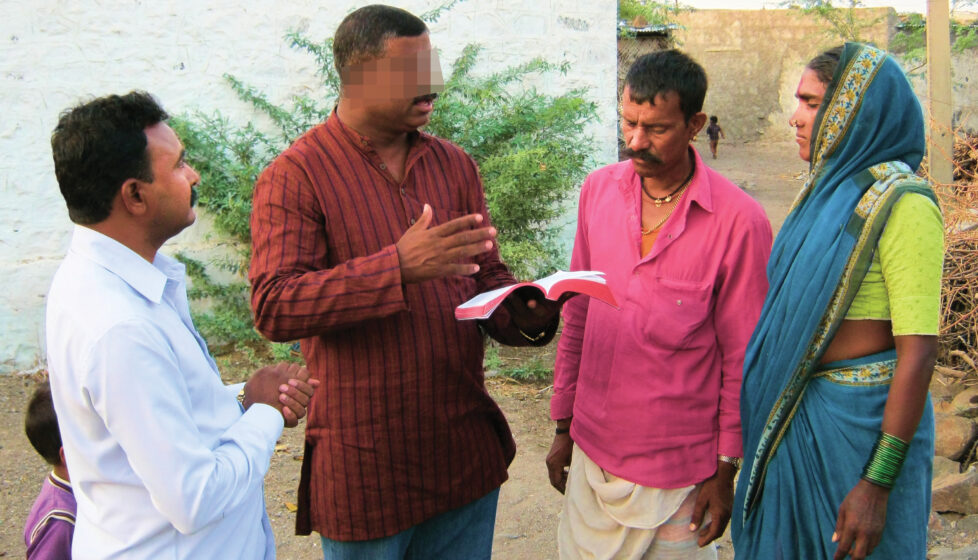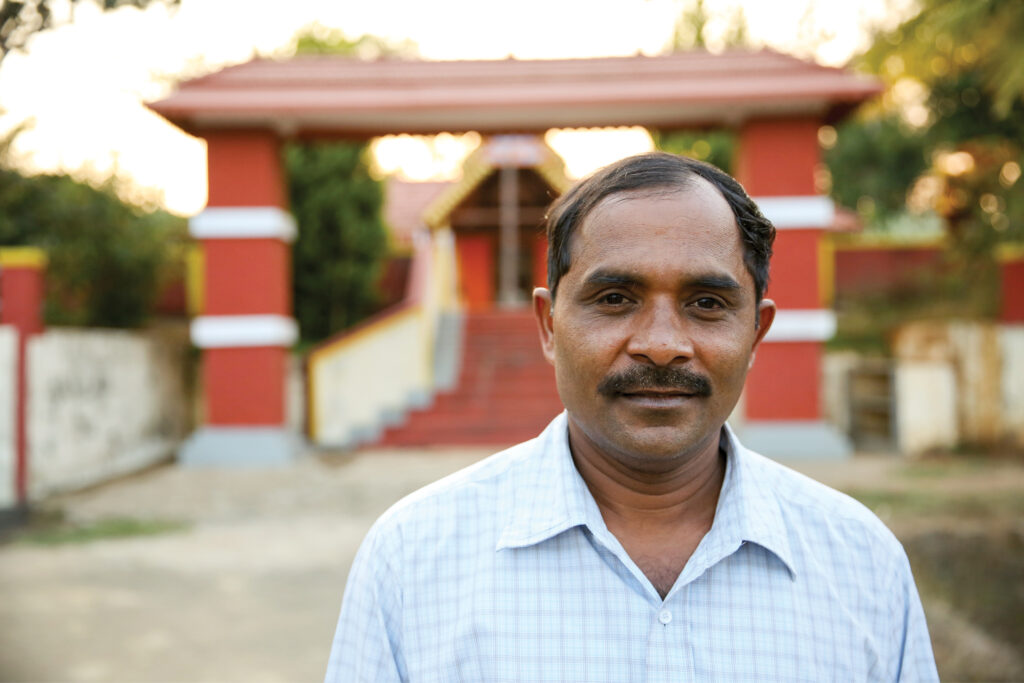Indian Family Taken by RSS, Outcast for Following Christ
India

Just 10 days after Narendra Modi became India’s prime minister, Pratik and his family were targeted by Hindu nationalists.
Reaching Pratik’s house requires a bumpy drive down a narrow dirt road through a forest of sunlit coffee trees. Winding through the 10-acre coffee plantation, the road suddenly takes a sharp right turn before dropping down a steep hill. At the bottom of the hill — away from everyone else — sits his family’s small home.
In another part of the world, the house might feel like a peaceful hideaway. In southern India, however, Pratik and his family feel trapped.
They’ve felt this way since June 4, 2014, when about 30 Rashtriya Swayamsevak Sangh (RSS) members stormed into their house, forced Pratik, his wife, Dharmi, and their elder of two teenage daughters into SUVs and drove them to the nearest Hindu temple to be “reconverted” to Hinduism. Their younger daughter managed to escape the Hindu nationalists, who are working to return India’s population to its Hindu roots.
Life as Christians surrounded by 400 Hindu families had never been easy for Pratik’s family, and it has become even more difficult since Narendra Modi became India’s prime minister. Modi is a long-time RSS member, and his rise to power has further emboldened the growing Hindu nationalist movement; the attack on Pratik’s family occurred just 10 days after Modi took office.

As Christians have come under increasing pressure to return to Hinduism, Pratik’s family have accepted persecution as a normal part of their faith.
“Because of Christ, we are going through sufferings and beatings,” Dharmi said. “At the time I felt bad, but afterward I realized that it was a blessing.”
An Unwelcome Homecoming
Pratik and his family were dragged into the local temple, where a Hindu priest conducted a special reconversion ceremony known as Ghar Wapsi, or “Homecoming.”
After forcing Pratik and his family to kneel, the priest poured Hindu holy water over their heads, dabbed red powder on their foreheads and ordered them to eat food that had been dedicated to a Hindu deity.
Pratik immediately spit the food on the temple floor. One of the many RSS members surrounding the family then smashed a plate over his head, knocking him unconscious.
“Jesus help me! Help my husband!” Dharmi cried out.
“Don’t call to Jesus,” an RSS member scolded. “Call on the Hindu gods Rama, Krishna.”
Pratik lay unconscious for several minutes as dozens of RSS members surrounded him. When he regained consciousness, the priest poured 12 more bowls of holy water over him.
“You have to leave Christ and come to Hinduism!” they told Pratik as his wife and daughter prayed for him in Jesus’ name. Pratik refused.
Giving up on the reconversion, the RSS members decided to label the family as pariahs, calling on villagers to shun them.
“They brought a paper and wrote that nobody should go into our house and nobody should call us,” Pratik said. “We were like outcast people. Nobody can talk to us, no shops give us anything.”
Alone with God
RSS volunteers distributed copies of the document throughout the village, and life instantly became more burdensome for Pratik’s family. If villagers talk to the family or conduct business with them in any way, they are fined 2,000 rupees, equal to roughly $30.
Instead of buying milk in the village, Dharmi must walk 10 miles for groceries. Their daughters are no longer accepted at the local school, and when the family walks through the village, neighbors and even former friends spit on them and curse at them.
Eventually, the shunning turned into verbal intimidation. Villagers and RSS members threatened to set the family’s house on fire and eventually announced plans to kill them.

Still, the family remained confident in Christ’s presence. “We know that God is protecting us,” Pratik said, smiling.
The villagers’ threats soon led to an act of deceit intended to bring criminal charges against Pratik. Villagers secretly set up a Hindu idol on the edge of Pratik’s property — not uncommon in the area — and began publicly worshiping the idol and offering animal sacrifices there. A week later, a villager destroyed the idol hoping to implicate Pratik. Villagers then accused him of pushing it over and insulting their god.
As planned by the villagers, Pratik was arrested and charged with destroying a Hindu idol and insulting a Hindu god. Two months later, as court hearings continued, a man confessed that he had destroyed the idol with the intent of framing Pratik. The man wrote an apology to Pratik, and eventually the charges were dropped.
Fixed on the Unseen
By God’s grace, the family found a church about 15 miles away. They walk there and back twice a week to worship and enjoy fellowship with other believers.
Although they still struggle with isolation the rest of the week, they are more concerned about the souls of the 400 Hindu families in their village.
“We know they are perishing without Christ, so we are praying … that they should be saved,” Dharmi said.
VOM is helping fund their daughters’ education in a nearby village, and we also helped provide legal aid.
Pratik views his family’s difficulties from an eternal perspective. He has no intention of returning to Hinduism even though it would make his life easier. In fact, he and his wife laugh at the thought of it.
“This is for a short time,” Pratik said, “but everlasting is the blessing that we want. We want that life, not this one. If you cut off our head, no problem. We will be with Christ. We are not going to go back.”


 Guide
Guide